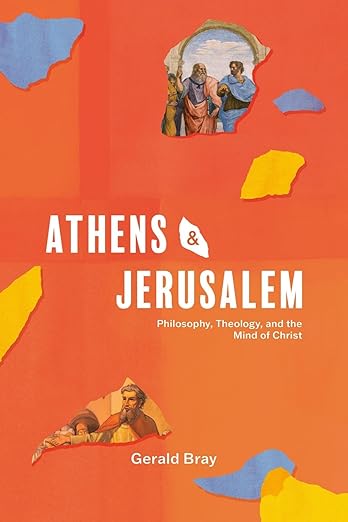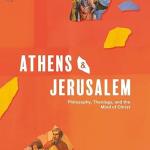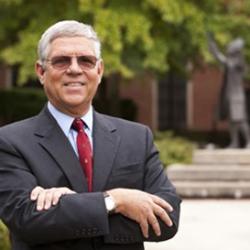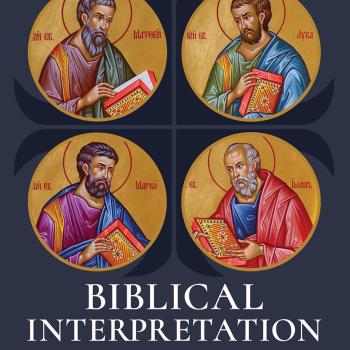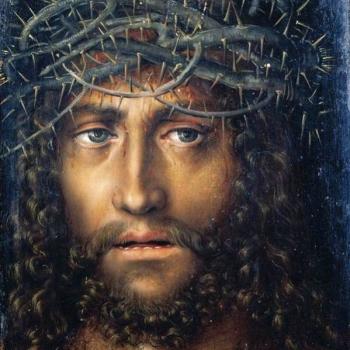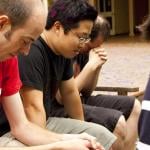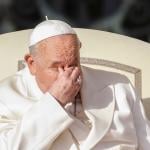A.D. 529 is when the Christian emperor closed the philosophical schools in Athens. But all sorts of philosophical debates were going on in the church surrounding the two natures of Christ. Part of the discussion led to the discussion that Christ must have had two wills– one human one divine. This is where I agree with Richard Bauckham, that we should be talking about Christ being part of the divine identity, not be talking about two natures in Christ. This sort of dualistic thinking leads to the following: “A real human being must have a rational soul [or a human spirit] and so the Incarnate Son of God had one, too. But could a man die and return to life with a new nature? Here the answer was yes , because the man is a person and a person controls its nature– not the other way around. Just as the Son of God could take on a second nature without losing or compromising his first (divine) one, so he could die in that second nature and return from the dead without ceasing to be himself.” (p.89).
Here it would be appropriate to say that what John 1 says is that ‘the Word took on flesh’, it does not say he took on a whole new and different nature. And what this surely meant was the Son of God took on a human body and became a human being, without ceasing to be the Son of God. It was an additive process, not a substitutionary process. One of the problems with over-defining things is one risks distortion, and for sure when you are dealing with Greek words like ‘ousia’ ‘physis’, and ‘hypostasis’, and ‘prospon’ a term that came not from philosophy but from the theater referring to a person, in this case one of the actors, distortion and misunderstanding was likely.
One of the most important points Bray makes in regard to the filoque controversy (did the Spirit proceed from both the Father and the Son or, just from the Father) which divided the eastern and western churches is this on p. 92:
“From a philosophical standpoint, it is easy to see that the Eastern position is grounded in a concept of monotheism that insists that all things must derive from a single source– in this case the Father. It is not an adoption of any particular philosophical doctrine but is intelligible to anyone schooled in NeoPlatonism. The Western view is more complex. It does not deny monotheism but maintains that the one God is a community of person into which those who are saved are integrated. …The practical result of this is that Eastern theological thought concentrates on the concept of what has come to be called ‘theosis’ (deification), which involves a transformation of human nature into something approximating the divine, whereas the Western equivalent focuses on justification. This [latter] means that the Father accepts sinners as they are, without any transformation of their nature, because their sins have been paid for by the atoning blood of Christ.”
In fact there are problems with both sides of this discussion: 1) 2 Peter 1 says “he has given us his very great and precious promises, so that through them you may participate in the divine nature, having escaped the corruption in the world caused by evil desires” which surely refers to the moral reform of the sinner, not that they have become deified or god-like. 2) on the other side of the equation, justification has to do with being given right standing with God, and is coincident with the new birth. Because it involves both there is a transformation of human nature when one becomes a new creature in Christ, working out their salvation with fear and trembling. In short, justification never stands alone, it always also is accompanied by the new birth, so the notion of imputed righteousness is not the basis of acceptance– right standing and the new birth by grace through faith in Jesus is. In short, God is concerned with imparted righteousness– which is what sanctification is about.
But what about the notion of God’s impassibility— Bray says “The classical mind thought of impassability in terms of God’s immunity to external influences– he could not be swayed or harmed by any power outside himself. But today most people who think about impassibility view the question as one which affects the internal being of God. Its not so much a matter of whether God can suffer pain himself as whether he can feel our pain. If he can, then it seems natural to say that he suffers not physically but mentally and spiritually. That is the modern approach and in essence it can be traced back to Augustine.” (p. 93).
But can one really define God in human terms through the use of philosophy? “Properly understood and used the, philosophy points beyond itself and gives the intellect a thirst for the knowledge of God that can only come through revelation. In this respect, the apophatic [i.e. negative] approach of Pseudo-Dionysius represented a turning point in the relationship between theology and philosophy that is still of fundamental importance today.” (p. 102). Philosophy becomes a preparation Evangelicii– a preparation for the Gospel.


